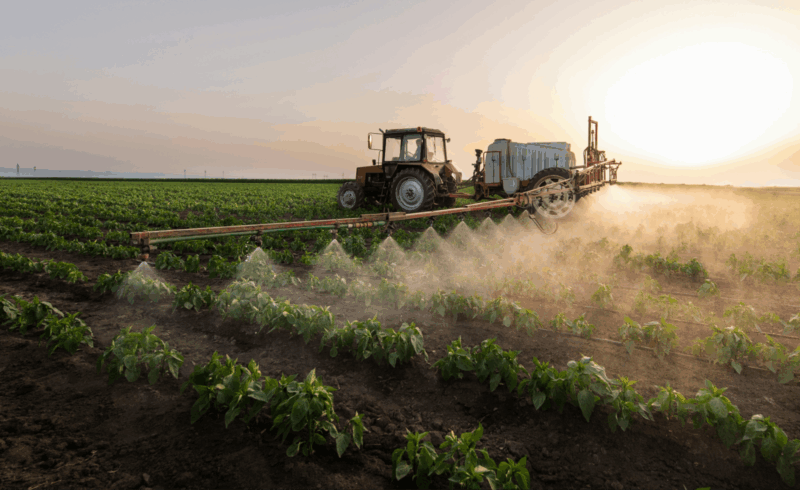Regenerative agriculture is rapidly emerging as a strategic priority for leading food companies.
It has become a regular topic of concern noted in conversation with our clients and candidates in the past year, with 60% of European farmland currently degraded and global soil organic carbon having declined by half, while climate shocks threaten to reduce key commodity yields by 20-30%.
It was also the focus of a recent Innovation Forum webinar featuring leaders from Nestlé, Unilever, and Rabobank.
The implications of regenerative practices extend well beyond sustainability teams, affecting senior and executive-level talent across both consumer and commodities markets. Executives are now tasked with translating regenerative initiatives into measurable business outcomes, balancing supply chain resilience, brand value and long-term risk management.
This article explores the strategic and talent-related challenges posed by the adoption of regenerative agriculture, including the skills and capabilities required at both operational and executive levels, the differences and overlaps between consumer and commodities talent needs, and how aligning talent with measurable outcomes can drive sustainable growth and competitive advantage.
Insights from the Innovation Forum Webinar
The recent Innovation Forum webinar highlighted several strategic shifts in how leading food companies approach regenerative agriculture. Robert Gerlach, CEO and co-founder of Klim, noted:
"“All of this pays ultimately into your company valuation. This is the ultimate gold standard for evaluating whether you should engage into a regenerative conversion or not.” "
Similarly, Emma Keller, Head of Sustainability at Nestlé UK & Ireland, compared it to R&D: “You would never question a business’s investment into its research and development to find new products or exciting innovations. That’s exactly what we’re seeing with investment in regenerative agriculture. It’s a business imperative to face into the climate shocks we’re already seeing today.”
Practical strategies emphasised included:
- Embedding regenerative criteria into procurement
- Supporting farmers with agronomic guidance
- Linking investments to financial incentives
Data collection and measurement were identified as critical for scaling impact, while starting small and iterating emerged as the most effective approach.
Talent Dynamics Across Commodities and Consumer Sectors
Integrating regenerative practices into the food ingredients sector requires a workforce with a broad and multifaceted skill set. At the operational level, professionals must combine expertise in:
- Sustainable sourcing
- Agronomy
- Data analytics
- Supply chain management
They are tasked with evaluating the impact of regenerative programmes on yield, quality, cost and environmental outcomes while ensuring alignment with broader corporate sustainability objectives.
For executive-level talent, the demands are even more strategic. Leaders must translate regenerative practices into measurable business outcomes, connecting environmental and social initiatives to brand value, investor expectations and long-term risk mitigation.
This requires an ability to think across the supply chain – from farm to consumer shelf – balancing short-term operational performance with long-term resilience. Executives also need to navigate complex stakeholder ecosystems, including suppliers, regulators, investors and consumers, and foster a culture where sustainability and innovation are embedded in decision-making.
While both commodities and consumer markets share the need for talent capable of integrating sustainability into supply chains, the focus differs.
In commodities, talent is often heavily analytical and technically focused, prioritising yield, cost efficiency, risk management and scalable practices across large supplier bases.
In consumer markets, the focus leans more towards brand positioning, consumer behaviour and product innovation, and translating sustainability initiatives into genuine environmental impact, market differentiation and value proposition.
Executives in both segments must collaborate to bridge these perspectives. In the commodities market, leaders may need to develop a stronger understanding of consumer trends and marketing implications, while consumer market executives may need to deepen their knowledge of agricultural science, commodity risk management and supplier engagement strategies.
This cross-pollination of skills is increasingly critical as regenerative agriculture programmes span both domains.
Strategic Implications for Talent Acquisition
Organisations must evaluate their hiring strategies to meet the demands of regenerative practices. This includes recruiting leadership talent with dual expertise in consumer behaviour and commodity supply chains who can bridge operational, technical and strategic priorities.
In commodities firms, talent strategies should focus on hiring (or developing) technical expertise in the latest regenerative practices, teaming this with an operational efficiency mindset and the ability to manage large-scale supplier networks to implement agreed policies. Leadership skill development should emphasise risk management, supply chain innovation and collaboration between procurement, agronomy and logistics teams.
In consumer organisations, hiring should prioritise candidates with experience in brand positioning, demonstrable market intelligence and a background in translating sustainability into consumer value, with leadership skills focusing on marketing, product innovation and cross-functional work with R&D and procurement.
Despite these differences, both sectors require adaptive learning, data literacy, collaboration skills and executive vision to create a culture that enables them to integrate regenerative initiatives successfully.
Conclusion
The convergence of consumer and commodities ingredients industries offers both opportunities and challenges in talent acquisition.
By equipping professionals with the skills to implement and measure the benefit of regenerative practices, organisations can:
- Enhance supply chain resilience
- Optimise costs
- Improve brand value
- Ensure long-term positive business and environmental outcomes
Strategic investment in senior and executive-level talent is therefore central to scaling sustainability initiatives and securing competitive advantage in an evolving food landscape.
–
Katie Dunbar
Associate Partner | Commodities | EMEA
E: katie.dunbar@weareprocogroup.com | T: +44 12 7364 8080
Connect on LinkedIn | View Profile
Chris Corcoran
Senior Partner | Consumer | EMEA
E: chris.corcoran@weareprocogroup.com | T: +44 203 962 4644




